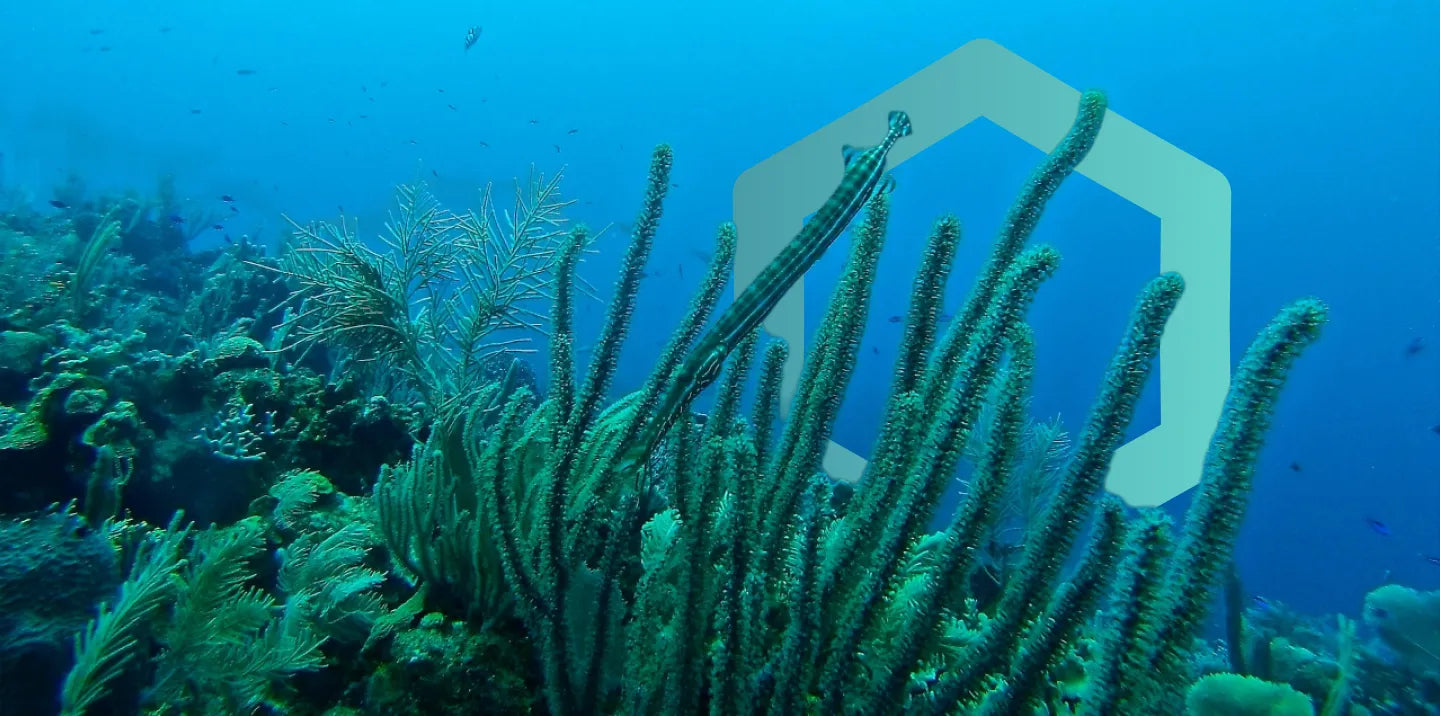Freshwater (multi-species)
Metabarcoding products for detecting a broad range of species in freshwater systems, such as rivers, ponds and lakes.
Not for use in estuarine systems. In estuarine systems please use our marine water tests.
Key info and overview of all freshwater tests available at the bottom of this page. Scroll down below the product options to read key info on each test, plus an overview of our freshwater offering.
Collapsible content
What do I receive?
For each product purchased, you will receive:
- One sampling kit, to collect / store / transport your eDNA
- One report per test ('assay')
Kit options
Aquatic: contains a hand-operated syringe, for manually pushing water through the kit's eDNA filter.
Aquatic - for pump: does not contain a hand-operated syringe. Instead contains tubing and adaptors for use with powered peristaltic pumps (e.g. Vampire Samplers). Pumps are not included and are not supplied by NatureMetrics.
Tissue: This kit is available only for the freshwater invertebrates option. It contains a pot for safe storage and transport of tissue samples collected from e.g. kick-nets.
Regional considerations
Please note: The ‘Bivalves (excl. Unionid mussels)’ and ‘Unionid mussels’ tests are designed for use in the UK. They can be used outside of the UK, but we have less information on what they will detect. All other freshwater tests can be used in freshwater systems across the globe.
Click on product names for more info
Use the filters & 'sort by' to select your desired combination of kits + tests.
Each product consists of 1 kit + 1 report for each test.
Desired product combination not available? Please get in touch and we'll gladly set it up for you.
-
Vertebrates (freshwater)
Regular price £335.00 GBPRegular priceUnit price per -
Vertebrates (freshwater) - for pump
Regular price £335.00 GBPRegular priceUnit price per -
Fish (freshwater)
Regular price £335.00 GBPRegular priceUnit price per -
Fish (freshwater) - for pump
Regular price £335.00 GBPRegular priceUnit price per -
Insects (freshwater)
Regular price £335.00 GBPRegular priceUnit price per -
Insects (freshwater) - for pump
Regular price £335.00 GBPRegular priceUnit price per -
Mammals (freshwater)
Regular price £335.00 GBPRegular priceUnit price per -
Mammals (freshwater) - for pump
Regular price £335.00 GBPRegular priceUnit price per -
Unionid mussels (freshwater)
Regular price £335.00 GBPRegular priceUnit price per -
Unionid mussels (freshwater) - for pump
Regular price £335.00 GBPRegular priceUnit price per -
Bivalves (excl. Unionid mussels) (freshwater)
Regular price £335.00 GBPRegular priceUnit price per -
Bivalves (excl. Unionid mussels) (freshwater) - for pump
Regular price £335.00 GBPRegular priceUnit price per
Freshwater tests - key info
Vertebrates
Detects fish, amphibians and mammals, generally to species level. Some closely related fish species, such as perch and zander cannot be separated.
Terrestrial mammal eDNA can often end up in nearby water courses, so this test can have the added benefit of delivering detections for some terrestrial vertebrates.
Results are often comprised of a high percentage of fish species (especially ray-finned fish, Actinopterygii) and can include marine mammals, and high (family) level identification for some bird species.
Birds and reptiles can be detected, but this test should not be relied upon as a comprehensive test for these groups.
Fish
Optimised for ray-finned fish (Actinopterygii) such as tuna, seahorses, gobies, cichlids, flatfish, wrasse, perch, anglerfish and pufferfish.
This test does not perform as well for detecting sharks and rays.
In some cases, this test does not provide species level data, e.g. river lamprey and brook lamprey; ide and dace.
Mammals
Detects aquatic and semi-aquatic mammals, and many terrestrial mammals who have visited the water or are nearby – as terrestrial mammal eDNA can often end up in nearby water courses, via runoff.
Detection of terrestrial species can be sporadic as they are less likely to contact water and deposit eDNA. Detection of terrestrial species is dependent on the species either directly interacting with water and/or their eDNA being transported from other waterbodies/via runoff.
Insects
Detects mayflies, stoneflies, caddisflies, beetles, mussels and other invertebrates and insects. Particularly useful for detecting chironomid flies (non-biting midges) which are used in many parts of the world to monitor freshwater health.
Identifies many taxa to species level that are otherwise difficult to disambiguate (e.g. chironomids).
Detects many species that are important indicators of water quality.
Designed for arthropods, this test carries a bias towards soft-bodied taxa (e.g. Diptera spp.) over hard-bodied taxa (e.g. Coleoptera spp.).
Unionid mussels
Used to identify mussels in the family Unionidae, which includes the endangered freshwater pearl mussel.
Designed for use in the UK. Can be used outside of the UK, but we have less information on what it can detect.
Bivalves (excl. Unionid mussels)
Used to identify mussels in the family Veneridae, and can detect presence of zebra mussels, quagga mussels, and Asian clams.
Designed for use in the UK. Can be used outside of the UK, but we have less information on what it can detect.
Invertebrates (from tissue samples)
Groups detected include arthropods, invertebrates, mayflies, stoneflies, caddisflies, beetles, chironomid flies (non-biting midges) and others.
Species detected are important indicators of water quality.
Detects freshwater invertebrate species collected by multiple sampling methods, e.g. kick-net sampling.
Tissue must be larger than 0.3mm (300um).
Freshwater tests - overview
Kits
All tests, other than the 'invertebrates (from tissue samples)' test, are available for either our standard aquatic kit or our aquatic kit - for pump.
The same choice of tests is available for aquatic kits as it is for the aquatic kit - for pump. Your choice of aquatic kit does not impact which tests are available.
The tissue kit contains a pot for samples to be placed into (from e.g. kit-nets) and is available only for the 'invertebrates (from tissue samples)' test.
Kit instructions
Kit instructions available here.
Terrestrial eDNA
Vertebrate and mammal tests may detect nearby terrestrial species.
Terrestrial mammal eDNA can often end up in nearby water courses, via runoff. This means our vertebrate and mammal tests can detect not only aquatic and semi-aquatic mammals, but terrestrial mammals who have visited the water or are nearby.
DOT-NM autosampler kits
These are not currently available from this store. To purchase, please get in touch.
Bacteria
Our freshwater bacteria kit and test combination is not currently available from this store. To purchase, please get in touch.

